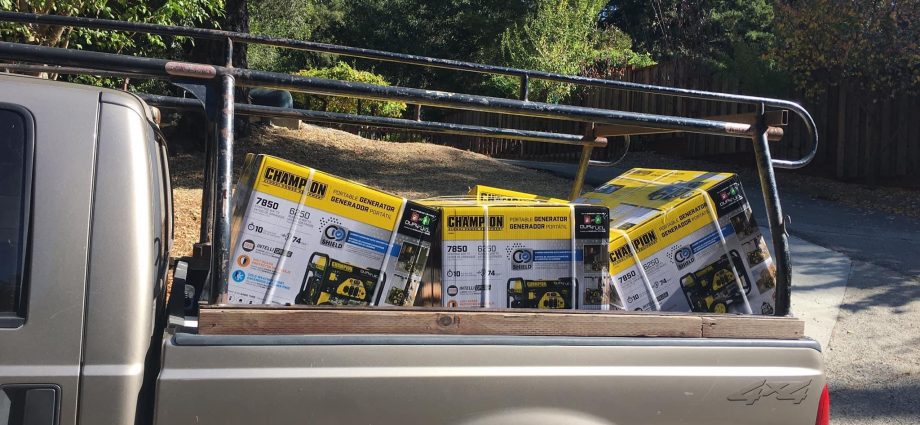By Kevin Foster
As power outages become more frequent with the new hair trigger sensors on our power poles, I’ve reached out to the community to see how they are adapting to this frustrating inconvenience. I myself was fortunate to be right on Highway nine and have AT&T phone line internet Installed when buying my home years ago, having my stove and heat work off of propane and dish for my television service, I was fortunate enough to not be buried in trees and have a clear line of sight. With those two lucky options and for years with a gas generator, I’ve been fortunate enough to always have TV, internet and power when we have strong winter storms and now with the constant power outages from sensitive breakers on the power poles.
I’ve reached out to several community members to put together some of their statements on what they utilize to overcome the new headache of loss of power. Those that work from home such as Jeff Shumway, a Boulder Creek Resident. “We have a Generac propane generator with a transfer switch for the house and since I work from home, I bought a few UPS (Uninterrupted Power Supply) to cover the 10 second lag when we lose power. I’ve got them for my work computer, cable modem and cable boxes so that none go through a hard reset every time the power goes out.” (AmazonBasics Standby UPS 400VA)
Being one of those for years that I had to go out, gas up, start my generator and run chords, I wondered how those that work from home and have the old pull start generators, have kept their computers running when they worked from home. Terryn Ashley responded “We have these battery backup boxes that would keep the computer going long enough to go manually start the generator. The problem was that the battery wouldn’t recharge when plugged into the generator so if the power was out for a while, we would have to switch everything over to a regular power strip and extension cord. I was told it has something to do with dirty electricity.” Now, we have a Generac and a transfer switch and they work just fine. They cover the time to switch over and the battery doesn’t die. (CyberPower-CP1350AVRLCD-Intelligent-Outlets-Mini-Tower)
Last year I bit the bullet and installed the whole house generator with an automatic transfer switch. Since that time, I’ve been learning there’s other important things that go along with having a whole house generator. When I asked in my forum what the community is using to overcome these obstacles, Shelly Marks chimed in and reminded me the importance of a surge protector. Shelly Marx writes “I had my current electric company install a standby generator and they also installed a whole house surge protector. I have one on my regular house panel as well as the genny panel. Now I don’t need surge protectors on all my appliances.”
When installing my whole house generator I had forgotten about this option and it is next on my list.
Several community members have installed solar, power walls and battery back up switches. I’ve learned there’s no power loss with those options.
Others have relied on their satellite internet, those that are fortunate not to be blocked by trees. Even some members that have Xfinity, which is the fastest internet but also the one that goes down every time the power is out, utilize their car Wi-Fi when power is down.
While researching this column, I think the most important thing I’ve learned is about surge protectors. Electricians will come and install a whole house surge protector to prevent your electronics on your stove, microwave, refrigerators, and TVs from getting fried. And of course, not all of us can afford that so adding a surge protector behind your stove in your upper cabinet where your microwave plugs in and where your TV and other electronics plug-in would be the next option. Keep in mind, never overload surge protectors with too many things plugged in because they are a fire hazard when overloaded. 
Always a good idea to reach out to our local electricians in our community to ask for estimates and advice on options. They will advise you on economic ways to protect your electrical appliances and computers and explain the differences between inverter generators versus regular generators. Small power supplies that will benefit your needs whether they’re small or large. Also PG&E offers emergency power supplies for those with medical needs. And some are eligible for their new programs such as the free backup power transfer meter that lets you determine which rooms or appliances to power during a power outage.
With constant power outages being the new normal. I hope some of these suggestions can help you during loss of power. Our community is always a blessing so don’t hesitate to ask in your local forums or contact your local electricians.


